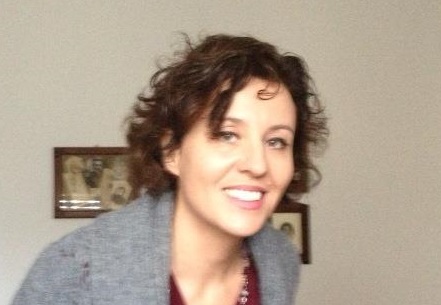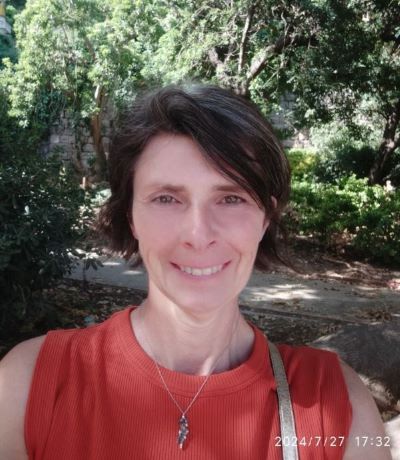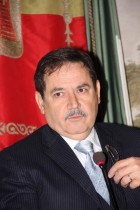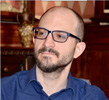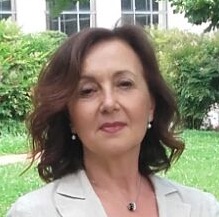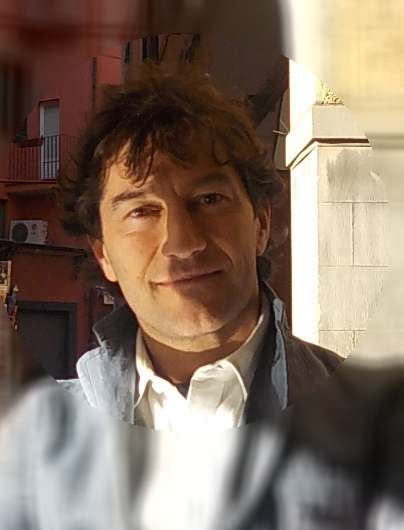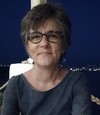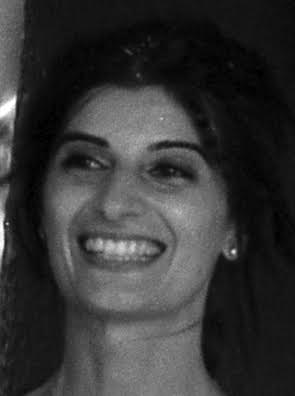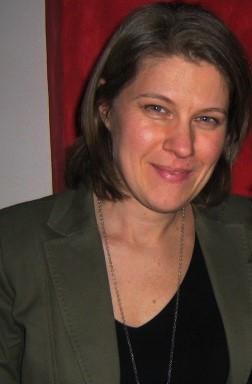Studying at the University of Verona
Here you can find information on the organisational aspects of the Programme, lecture timetables, learning activities and useful contact details for your time at the University, from enrolment to graduation.
Academic calendar
The academic calendar shows the deadlines and scheduled events that are relevant to students, teaching and technical-administrative staff of the University. Public holidays and University closures are also indicated. The academic year normally begins on 1 October each year and ends on 30 September of the following year.
Course calendar
The Academic Calendar sets out the degree programme lecture and exam timetables, as well as the relevant university closure dates..
| Period | From | To |
|---|---|---|
| Sem. IA | Sep 28, 2015 | Nov 8, 2015 |
| Sem. IB | Nov 9, 2015 | Jan 17, 2016 |
| Sem. IIA | Feb 22, 2016 | Apr 24, 2016 |
| Sem. IIB | Apr 25, 2016 | Jun 5, 2016 |
| Session | From | To |
|---|---|---|
| Sessione Estiva | Jun 6, 2016 | Jul 31, 2016 |
| Sessione Autunnale | Sep 1, 2016 | Sep 30, 2016 |
| Sessione Invernale | Jan 23, 2017 | Feb 25, 2017 |
| Session | From | To |
|---|---|---|
| Sesione Estiva | Jul 8, 2016 | Jul 15, 2016 |
| Sessione Autunnale (Solo Scienze del Serv. Sociale: Ven. 04/11/2016) | Nov 21, 2016 | Nov 26, 2016 |
| Sessione Invernale | Apr 3, 2017 | Apr 8, 2017 |
| Period | From | To |
|---|---|---|
| Festa di Ognissanti | Nov 1, 2015 | Nov 1, 2015 |
| Festa dell'Immacolata | Dec 8, 2015 | Dec 8, 2015 |
| Vacanze Natalizie | Dec 23, 2015 | Jan 6, 2016 |
| Vacanze Pasquali | Mar 24, 2016 | Mar 29, 2016 |
| Festa della Liberazione | Apr 25, 2016 | Apr 25, 2016 |
| Festa dei Lavoratori | May 1, 2016 | May 1, 2016 |
| Festa del S. Patrono S. Zeno | May 21, 2016 | May 21, 2016 |
| Festa della Repubblica | Jun 2, 2016 | Jun 2, 2016 |
| Vacanze Estive | Aug 8, 2016 | Aug 15, 2016 |
Exam calendar
Exam dates and rounds are managed by the relevant Humanistic Studies Teaching and Student Services Unit.
To view all the exam sessions available, please use the Exam dashboard on ESSE3.
If you forgot your login details or have problems logging in, please contact the relevant IT HelpDesk, or check the login details recovery web page.
Academic staff
 cristina.bertazzoni@univr.it
cristina.bertazzoni@univr.it
 sonia.claris@univr.it
sonia.claris@univr.it
 laura.fontecedro@univr.it
laura.fontecedro@univr.it
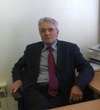
Longo Mario
 mario.longo@univr.it
mario.longo@univr.it
 045 8028393
045 8028393
 elisabetta.madriz@univr.it; elisamadriz@libero.it
elisabetta.madriz@univr.it; elisamadriz@libero.it
 federico.melotto@univr.it; federicomelotto@hotmail.com
federico.melotto@univr.it; federicomelotto@hotmail.com

Migliorati Lorenzo
 lorenzo.migliorati@univr.it
lorenzo.migliorati@univr.it
 045802 8135
045802 8135
 igor.pelgreffi@univr.it
igor.pelgreffi@univr.it
 daniela.princivalle@univr.it
daniela.princivalle@univr.it
 sabrina.tosicambini@univr.it
sabrina.tosicambini@univr.it
Study Plan
The Study Plan includes all modules, teaching and learning activities that each student will need to undertake during their time at the University.
Please select your Study Plan based on your enrollment year.
1° Year
| Modules | Credits | TAF | SSD |
|---|
Cultural Anthropology
Developmental and educational psychology
Sociology and analysis of social dynamics
History of Philosophy
History of Education and Pedagogy
A course to be chosen among the following2° Year activated in the A.Y. 2016/2017
| Modules | Credits | TAF | SSD |
|---|
Teaching methodology and educational planning
Early Childhood Education
Computer Science and Multimedia
Theories and methods of cultural mediation
A course to be chosen among the followingA course to be chosen among the followingSocial and Cultural Geography
A course to be chosen among the following3° Year activated in the A.Y. 2017/2018
| Modules | Credits | TAF | SSD |
|---|
A course to be chosen among the followingA course to be chosen among the followingTheories and techniques of the primary socialization
A course to be chosen among the following| Modules | Credits | TAF | SSD |
|---|
Cultural Anthropology
Developmental and educational psychology
Sociology and analysis of social dynamics
History of Philosophy
History of Education and Pedagogy
A course to be chosen among the following| Modules | Credits | TAF | SSD |
|---|
Teaching methodology and educational planning
Early Childhood Education
Computer Science and Multimedia
Theories and methods of cultural mediation
A course to be chosen among the followingA course to be chosen among the followingSocial and Cultural Geography
A course to be chosen among the following| Modules | Credits | TAF | SSD |
|---|
A course to be chosen among the followingA course to be chosen among the followingTheories and techniques of the primary socialization
A course to be chosen among the following| Modules | Credits | TAF | SSD |
|---|
Legend | Type of training activity (TTA)
TAF (Type of Educational Activity) All courses and activities are classified into different types of educational activities, indicated by a letter.
History of Education and Pedagogy [Cognomi A-L] (2015/2016)
Teaching code
4S00778
Teacher
Coordinator
Credits
9
Language
Italian
Scientific Disciplinary Sector (SSD)
M-PED/02 - HISTORY OF PEDAGOGY AND EDUCATION
Period
Sem. IIA, Sem. IIB
Learning outcomes
The course of the history of education and pedagogy aims to help students, who have targeted training for professional educators, to develop a vision on the evolution of the terms and historiographical reflections sull'educativo, it characterized not by foreclosures and apriorisms but rather the sense of the complexity of the methods, of the views and attitudes of openness. Through the delivery of problems and frameworks, the course tends therefore to promote a critical self-reflexive on educational and cultural issues related to modern and contemporary period and the first acquisition of vocabulary teaching.
* Knowledge: the path of pedagogy and education in modern and contemporary. Deepening of some thematic pedagogical relative (eg. Educator, children, women, marginalization, adulthood and elderly), in its historical development.
* Understanding: development of critical thinking skills of the student, who must stand in front of each historical document (written or not) with an attitude of "suspension" and without prejudice and preconception, but with the ability to correct reading and interpretation.
* Ability to use: the student, at the end of the course, should have gained understanding of texts for educational and place them in time. It should be able to understand the evolution of educational thought to grasp the permanence and absences in the current world; to bring out the line of continuity that binds the ages to the present. In a word to interpret the evolution of historical and pedagogical know how to contextualize analyzing from several points of view.
Program
The history of education and pedagogy explores the evolution of educational thought, captures the most marked changes of the various educational models and at the same time the educational practices (in the family, at school, in the various ages of man) occurred in the course of time, especially starting from the modern. Thus it allows to reflect on the thinking of some important educators of the past that have marked the history of education; puts the light use pragmatic, done at school and elsewhere, the teaching of history, that is aimed at practical effects underlying conceptions providential, ethnocentric and nationalistic; It makes us understand how we are the fruit of men, of their thinking and their works, which have gone before us, in a process, continuous and discontinuous in the same way temIl of pedagogy and education in the modern age, from Rousseau to the present day .
The evolution of education of the child, a journey strewn often of "violence and abuse".
The intergenerational relationship that binds the different ages, especially grandparents and grandchildren.
Analysis of sources and documents relating to the history of pedagogy and education.
Reading list
R. Lanfranchi-J.M. Prellezo, Elementary School and pedagogy in the furrows of history, vol. 2, the Enlightenment era of globalization, LAS, Rome, 2008.
M. Gecchele, The image of grandparents in children and pre-adolescents. Thirty years of research, Think MultiMedia, Lecce-Rovato (Bs), 2015.
J. Korczak, The child's right to respect, Donkey Editions, Rome, 2011.
M. R. Storchi, Childhood violated. History of "abuse" against children in the nineteenth and twentieth century, Manna, Naples, 2015.
Examination Methods
Written exam with open questions
Type D and Type F activities
Modules not yet included
Career prospects
Module/Programme news
News for students
There you will find information, resources and services useful during your time at the University (Student’s exam record, your study plan on ESSE3, Distance Learning courses, university email account, office forms, administrative procedures, etc.). You can log into MyUnivr with your GIA login details: only in this way will you be able to receive notification of all the notices from your teachers and your secretariat via email and also via the Univr app.
Graduation
Documents
| Title | Info File |
|---|---|
|
|
pdf, it, 109 KB, 12/07/24 |
|
|
pdf, it, 112 KB, 14/05/24 |
List of thesis proposals
| theses proposals | Research area |
|---|---|
| Ambienti e contesti di lavoro con minori | Various topics |
| Analisi dei personal network di sostegno | Various topics |
| comunicazioni relative alla tesi | Various topics |
| Il teatro come contesto educativo | Various topics |
| I processi di globalizzazione culturale nella società contemporanea | Various topics |
| La social network analysis applicata allo studio dei contesti educativi | Various topics |
| L'educatore ed i progetti europei | Various topics |
| L'impegno associativo in ambito educativo | Various topics |
| Politiche sociali e contesti educativi | Various topics |
| Progetti di collaborazione con le istituzioni scolastiche | Various topics |
| PROPOSTE TESI AMBITO GEOGRAFICO | Various topics |
| Scuola e capitale sociale | Various topics |
Linguistic training CLA
Gestione carriere
Student mentoring
Practical information for students
Documents
| Title | Info File |
|---|---|
|
|
pdf, it, 325 KB, 16/07/24 |
|
|
pdf, it, 212 KB, 02/05/23 |
|
|
pdf, it, 131 KB, 02/05/23 |
Stage e Tirocini
Le ulteriori attività formative (crediti F) sono interamente coperte dall’attività di tirocinio “indiretto” (1 cfu) da svolgersi nel secondo anno e di tirocinio “diretto” (14 cfu) da svolgersi presso enti convenzionati per un numero complessivo di 15 cfu (375 ore). Chi è iscritta/o al curriculum servizi per l’infanzia è tenuta/o a svolgere il tirocinio presso nidi e servizi per la prima infanzia per almeno il 50% delle ore.
Il tirocinio professionalizzante (375 ore, pari a 15 cfu), è obbligatorio sia nella sua forma diretta che indiretta.
Il tirocinio indiretto, della durata di 25 ore a frequenza obbligatoria al 75%, si svolge in Università per 20 ore e in forma di lavoro individuale per 5 ore e consiste in un accompagnamento iniziale delle/degli studenti da parte dei tutor attraverso un percorso formativo dotandoli di conoscenze e strumenti adeguati a osservare, comprendere e rielaborare criticamente l’esperienza di tirocinio nei servizi educativi e ad affrontare il tirocinio negli enti con metodo e consapevolezza. Il percorso, da attuare in gruppi da 20-25 persone sotto la supervisione di un tutor, risponde alle esigenze costantemente espresse sia dalle/dagli studenti stessi sia dalle parti sociali che dai referenti degli enti convenzionati.
Il tirocinio diretto si propone di raggiungere i seguenti obiettivi:
- fare esperienza diretta di attività professionali, che richiedono un livello di preparazione al lavoro educativo;
- approfondire in particolare il rapporto tra preparazione teorica, acquisita mediante lo studio, ed esperienza pratica, tra mondo del sapere e della cultura e mondo del lavoro e delle professioni;
Al termine del tirocinio diretto lo studente deve presentare una relazione scritta, nella modalità concordata con il tutor accademico.
Nuove Linee Guida per il tirocinio di Scienze dell'educazione.
- Tutte le informazioni in merito agli stage per futuri studenti sono disponibili alla pagina Stage e tirocini.
- Tutte le informazioni in merito agli stage per studenti iscritti sono pubblicate in MyUnivr - come fare per - stage e tirocini.
- Tutte le informazioni in merito agli stage per le aziende sono disponili alla pagina Stage e tirocini per azienze.
Documents
| Title | Info File |
|---|---|
|
|
pdf, it, 302 KB, 16/07/21 |
Student login and resources
Modalità e sedi di frequenza
La frequenza non è obbligatoria.
Maggiori dettagli in merito all'obbligo di frequenza vengono riportati nel Regolamento del corso di studio disponibile alla voce Regolamenti nel menu Il Corso. Anche se il regolamento non prevede un obbligo specifico, verifica le indicazioni previste dal singolo docente per ciascun insegnamento o per eventuali laboratori e/o tirocinio.
È consentita l'iscrizione a tempo parziale. Per saperne di più consulta la pagina Possibilità di iscrizione Part time.
Le sedi di svolgimento delle lezioni e degli esami sono le seguenti
- Polo Zanotto (vicino si trova il Palazzo di Lettere)
- Palazzo ex Economia
- Polo Santa Marta
- Istituto ex Orsoline
- Palazzo Zorzi (Lungadige Porta Vittoria, 17 - 37129 Verona)
- Chiostro Santa Maria delle Vittorie, Lungadige Porta Vittoria, 41








